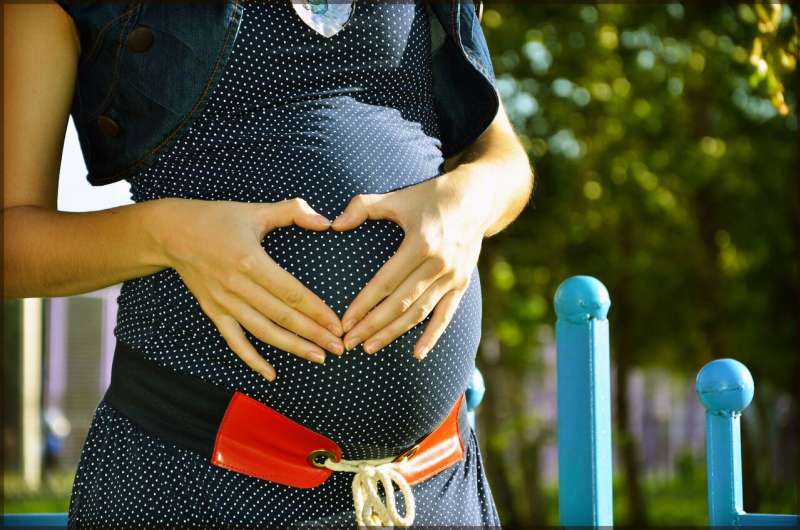This article has been reviewed according to Science X's editorial process and policies. Editors have highlighted the following attributes while ensuring the content's credibility:
fact-checked
peer-reviewed publication
trusted source
proofread
Lower risk of cesarean births seen in mothers after COVID vaccination

Pregnant women who have been vaccinated against COVID-19 are less likely to have a cesarean section or experience hypertension, according to a study.
A meta-analysis of 67 studies which included more than 1.8m women found that being fully vaccinated against COVID-19 had a protective benefit against infection and hospitalization, while vaccination with at least one dose lowered the risk of adverse pregnancy-related and neonatal outcomes.
Drawing on data from December 2019 to January 2023, the PregCOV study published in BMJ Global Health assessed evidence from global studies to evaluate the effectiveness of COVID vaccinations for pregnant women, who had increased risks associated with the virus.
The study found that women involved in the studies who had been fully vaccinated had a 61% reduction in the likelihood of getting COVID, and 94% reduced odds of hospital admission. Moreover, the meta-analysis suggests that vaccination leads to a 9% reduction in cesarean section risk, 12% reduction in hypertensive disorders in pregnancy; and an 8% reduction in the risk of intensive care unit admission for newborn babies born to vaccinated mothers.
Professor Shakila Thangaratinam, Dame Hilda Lloyd Chair of Maternal and Perinatal Health at the University of Birmingham and lead author of the PregCOV study said, "Our findings show how beneficial the vaccination program against COVID-19 has been for pregnant women.
"As well as the expected benefits from reduced infections, we have also seen a significant reduction in pregnancy complications including hypertension and cesarean sections. This underlines the importance of a systems approach to maternal health and the need to ensure that future health care policy, including pandemic preparedness, takes into account how connected natal care is for our health care.
"Pregnant women were unfortunately neglected during the height of the COVID-19 pandemic, especially when it came to a robust understanding of the impact of vaccinations for expectant mothers. PregCOV was launched during the pandemic to conduct a series of reviews to pull together the best evidence possible to support informed policy making for pregnant and postnatal women."
Evidence from the meta-analysis of studies has been able to draw robust conclusions about the reduction in risk of several pregnancy-related conditions, including less common outcomes such as neonatal intensive care unit admissions.
The research team, however, note that there have been too few cases and studies relating to adverse impacts such as thrombotic events or Guillan Barre syndrome from COVID-19 vaccination to draw any meaningful results, and that cases of several known impacts are very low.
In addition, the team note that studies have drawn on evidence across multiple waves of the COVID-19 pandemic and weren't able to differentiate potential changes in the effects caused by new variants of concern.
More information: Silvia Fernández-García et al, Effectiveness and safety of COVID-19 vaccines on maternal and perinatal outcomes: a systematic review and meta-analysis, BMJ Global Health (2024). DOI: 10.1136/bmjgh-2023-014247





















